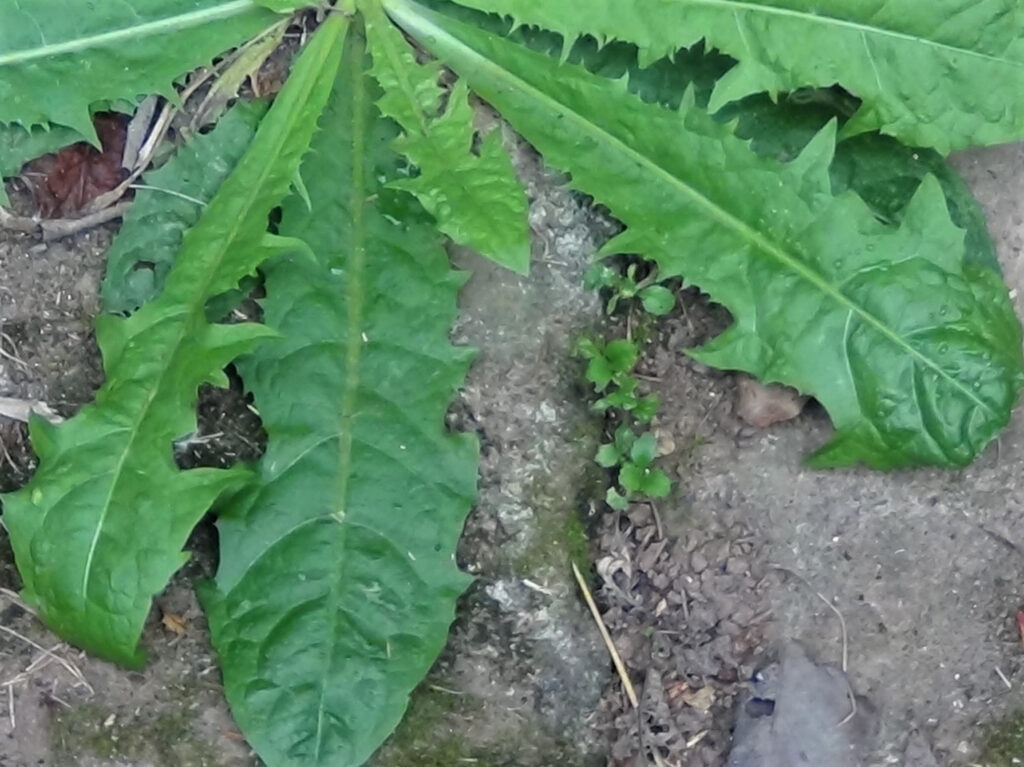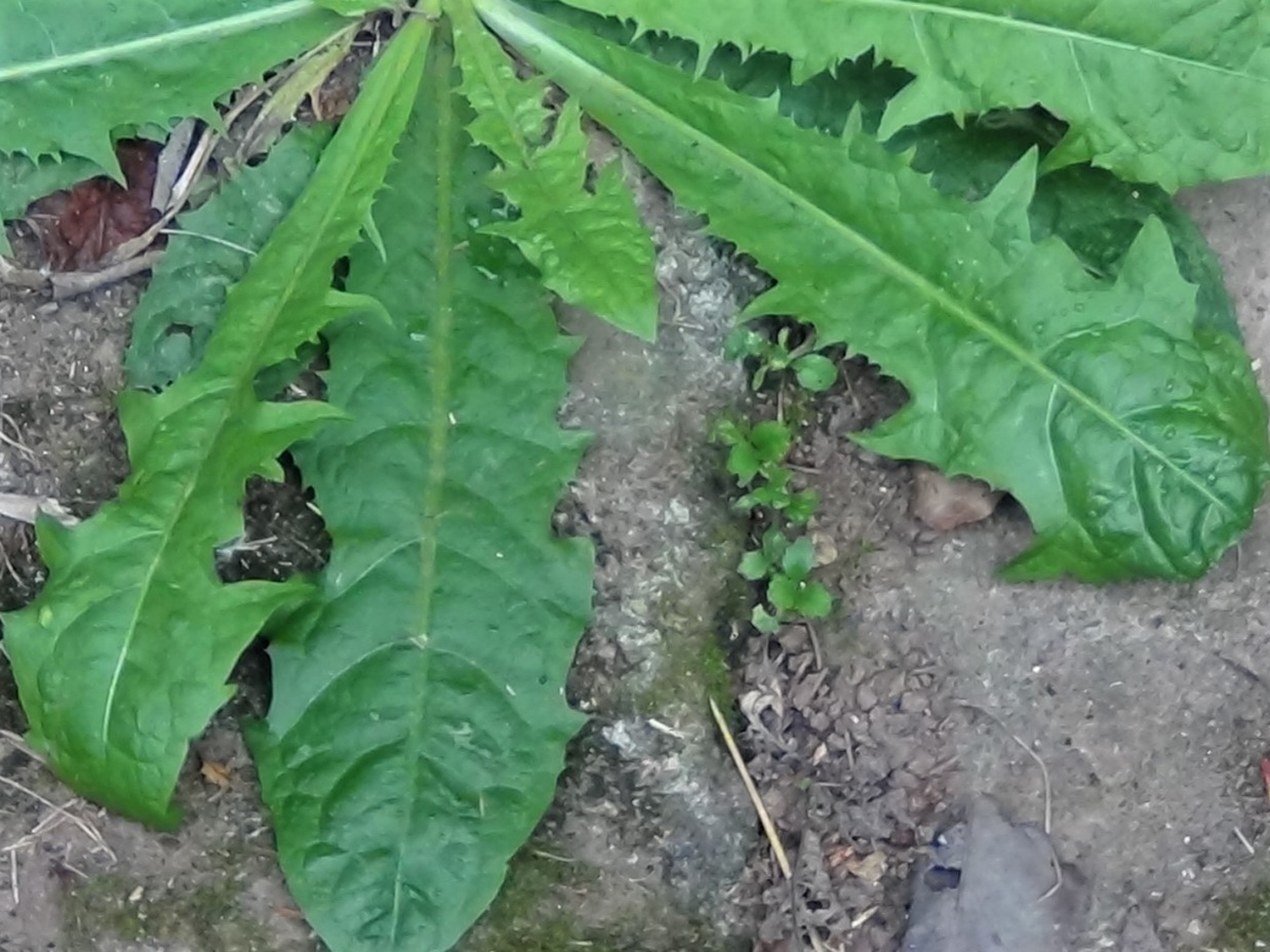
Dandelion leaves, often overlooked as a simple weed, are packed with powerful nutrients and medicinal properties. These leaves have been used in traditional medicine for centuries and are gaining popularity due to their health benefits. Rich in vitamins, minerals, and antioxidants, dandelion leaves offer numerous benefits for digestion, detoxification, and overall well-being. Here’s a closer look at the benefits and uses of dandelion leaves.
1. Rich in Nutrients
Dandelion leaves are loaded with essential vitamins and minerals, making them a great addition to your diet.
-
Vitamins: They are an excellent source of vitamin A, vitamin C, and vitamin K. Vitamin A is important for eye health, vitamin C supports the immune system, and vitamin K is essential for blood clotting and bone health.
-
Minerals: Dandelion leaves are also rich in calcium, iron, magnesium, and potassium, which are important for strong bones, proper muscle function, and maintaining healthy blood pressure.
-
Antioxidants: These leaves contain a variety of antioxidants, such as beta-carotene and polyphenols, which help neutralize free radicals and protect the body from oxidative stress.
2. Supports Digestive Health
Dandelion leaves have long been used as a natural remedy to improve digestion and support a healthy gut.
-
Mild Laxative: The leaves act as a natural, mild laxative, helping to promote regular bowel movements and prevent constipation.
-
Digestive Stimulant: Dandelion leaves stimulate the production of digestive enzymes and bile, which aids in breaking down fats and improving overall digestion.
-
Prebiotic Properties: The leaves contain inulin, a prebiotic fiber that supports the growth of healthy gut bacteria, promoting better digestion and absorption of nutrients.
3. Natural Diuretic
Dandelion leaves are known for their natural diuretic properties, which help the body eliminate excess water and toxins.
-
Reduces Water Retention: By increasing urine output, dandelion leaves help reduce bloating and swelling caused by water retention.
-
Detoxification: The diuretic effect helps the kidneys flush out toxins, promoting a natural detox and supporting kidney health.
-
Rich in Potassium: Unlike many diuretics that deplete potassium levels, dandelion leaves provide a rich source of potassium, helping to balance electrolytes while flushing out excess water.
4. Supports Liver Health
Dandelion leaves have been traditionally used to support liver function and promote detoxification.
-
Liver Detoxifier: The leaves stimulate bile production, which aids the liver in breaking down and eliminating toxins from the body.
-
Liver Protection: Some studies suggest that dandelion leaves may protect the liver from damage caused by toxins and oxidative stress.
5. Anti-inflammatory Properties
Dandelion leaves contain compounds with powerful anti-inflammatory effects, which may help reduce inflammation in the body.
-
Reduces Joint Pain: Traditionally, dandelion leaves have been used to relieve pain and inflammation in conditions such as arthritis.
-
Fights Inflammation: The antioxidants in dandelion leaves help reduce inflammation throughout the body, which may lower the risk of chronic diseases such as heart disease and diabetes.
6. Helps Lower Blood Pressure
Due to their diuretic properties and high potassium content, dandelion leaves may help regulate blood pressure levels.
-
Lowers Sodium: By increasing urine output, dandelion leaves help eliminate excess sodium from the body, which can help lower blood pressure.
-
Potassium Boost: The potassium found in dandelion leaves helps regulate blood pressure by balancing the effects of sodium and promoting healthy circulation.
7. Improves Immune Function
Dandelion leaves are rich in vitamin C and antioxidants, which help strengthen the immune system.
-
Boosts Immune Response: Vitamin C helps stimulate the production of white blood cells, which play a critical role in fighting infections.
-
Antimicrobial Properties: The leaves also contain natural antimicrobial compounds that may help protect against bacterial infections.
How to Use Dandelion Leaves
Dandelion leaves can be easily incorporated into your diet and wellness routine in a variety of ways:
1. Dandelion Tea
Dandelion tea made from the leaves is an excellent way to enjoy the health benefits of this plant. To make dandelion leaf tea:
-
Boil water and pour it over 1-2 teaspoons of dried dandelion leaves.
-
Let it steep for 5-10 minutes.
-
Strain and enjoy with honey or lemon if desired.
2. Salads and Smoothies
Fresh dandelion leaves can be eaten raw and add a slightly bitter, peppery flavor to salads and smoothies.
-
Salads: Use young dandelion leaves in salads, paired with other greens, and drizzle with olive oil and lemon for a simple, nutritious dish.
-
Smoothies: Add a handful of fresh dandelion leaves to your green smoothie for an added nutrient boost.
3. Sautéed Greens
Dandelion leaves can be cooked like spinach or other leafy greens.
-
Sauté dandelion leaves with garlic and olive oil for a quick and nutritious side dish.
-
You can also add them to soups, stews, or stir-fries.
Precautions
-
Allergies: Some people may be allergic to dandelion leaves, particularly if they are allergic to ragweed or related plants.
-
Medication Interactions: Dandelion leaves may interact with certain medications, such as diuretics or blood thinners, so it’s important to consult with a healthcare provider if you are on any medications.
Conclusion
Dandelion leaves are a powerhouse of nutrients and offer a wide range of health benefits, from improving digestion to supporting liver health and reducing inflammation. Whether consumed in tea, added to salads, or cooked as a green, dandelion leaves can easily be incorporated into your daily routine for a natural boost to your well-being. Give these humble leaves a try and enjoy their impressive health benefits!




